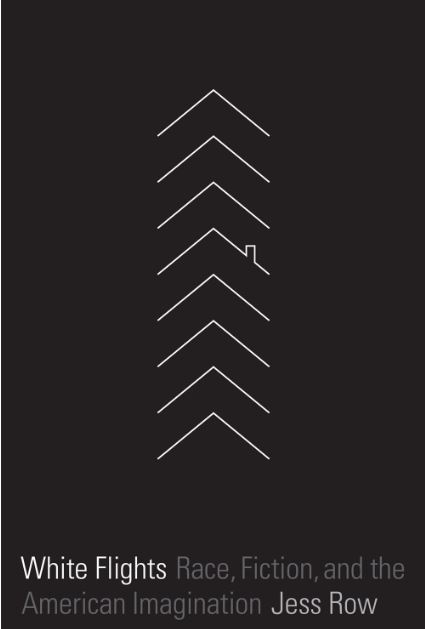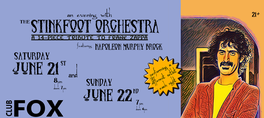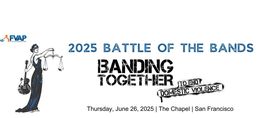Jess Row discusses his new book, White Flights: Race, Fiction and the American Imagination.
Praise for White Flights
“These are brilliant, sweeping, intimate delights—and afterward, you may never read the same way again.”—Alexander Chee
“A major literary and intellectual intervention, clarifying the real stakes in what we too complacently call ‘identity politics.’”—Pankaj Mishra
“We need this book, now and yesterday.”—Kiese Laymon
“Jess Row performs a much-needed analysis. . . . The landscape of the imagination, like the country itself, he argues with rich insight and brio, is neither equal nor free.”—John Keene
“White Flights will change my work, and my life, and for that I’m grateful.”—Jonathan Lethem
About White Flights
A bold, incisive look at race and reparative writing in American fiction, by the author of Your Face in Mine
White Flights is a meditation on whiteness in American fiction and culture from the end of the civil rights movement to the present. At the heart of the book, Jess Row ties “white flight”—the movement of white Americans into segregated communities, whether in suburbs or newly gentrified downtowns—to white writers setting their stories in isolated or emotionally insulated landscapes, from the mountains of Idaho in Marilynne Robinson’s Housekeeping to the claustrophobic households in Jonathan Franzen’s The Corrections. Row uses brilliant close readings of work from well-known writers such as Don DeLillo, Annie Dillard, Richard Ford, and David Foster Wallace to examine the ways these and other writers have sought imaginative space for themselves at the expense of engaging with race.
White Flights aims to move fiction to a more inclusive place, and Row looks beyond criticism to consider writing as a reparative act. What would it mean, he asks, if writers used fiction “to approach each other again”? Row turns to the work of James Baldwin, Dorothy Allison, and James Alan McPherson to discuss interracial love in fiction, while also examining his own family heritage as a way to interrogate his position. A moving and provocative book that includes music, film, and literature in its arguments, White Flights is an essential work of cultural and literary criticism.
show less
Praise for White Flights
“These are brilliant, sweeping, intimate delights—and afterward, you may never read the same way again.”—Alexander Chee
“A major literary and intellectual intervention, clarifying the real stakes in what we too complacently call ‘identity politics.’”—Pankaj Mishra
“We need this book, now and yesterday.”—Kiese Laymon
“Jess Row performs a much-needed analysis. . . . The landscape of the imagination, like the country itself, he argues with rich insight and brio, is neither equal nor free.”—John Keene
“White Flights will change my work, and my life, and for that I’m grateful.”—Jonathan Lethem
About White Flights
A bold, incisive look at race and reparative writing in American fiction, by the author of Your Face in Mine
White Flights is a meditation on whiteness in American fiction and culture from the end of the civil rights movement to the present. At the heart of the book, Jess Row ties “white flight”—the movement of white Americans into segregated communities, whether in suburbs or newly gentrified downtowns—to white writers setting their stories in isolated or emotionally insulated landscapes, from the mountains of Idaho in Marilynne Robinson’s Housekeeping to the claustrophobic households in Jonathan Franzen’s The Corrections. Row uses brilliant close readings of work from well-known writers such as Don DeLillo, Annie Dillard, Richard Ford, and David Foster Wallace to examine the ways these and other writers have sought imaginative space for themselves at the expense of engaging with race.
White Flights aims to move fiction to a more inclusive place, and Row looks beyond criticism to consider writing as a reparative act. What would it mean, he asks, if writers used fiction “to approach each other again”? Row turns to the work of James Baldwin, Dorothy Allison, and James Alan McPherson to discuss interracial love in fiction, while also examining his own family heritage as a way to interrogate his position. A moving and provocative book that includes music, film, and literature in its arguments, White Flights is an essential work of cultural and literary criticism.
Jess Row discusses his new book, White Flights: Race, Fiction and the American Imagination.
Praise for White Flights
“These are brilliant, sweeping, intimate delights—and afterward, you may never read the same way again.”—Alexander Chee
“A major literary and intellectual intervention, clarifying the real stakes in what we too complacently call ‘identity politics.’”—Pankaj Mishra
“We need this book, now and yesterday.”—Kiese Laymon
“Jess Row performs a much-needed analysis. . . . The landscape of the imagination, like the country itself, he argues with rich insight and brio, is neither equal nor free.”—John Keene
“White Flights will change my work, and my life, and for that I’m grateful.”—Jonathan Lethem
About White Flights
A bold, incisive look at race and reparative writing in American fiction, by the author of Your Face in Mine
White Flights is a meditation on whiteness in American fiction and culture from the end of the civil rights movement to the present. At the heart of the book, Jess Row ties “white flight”—the movement of white Americans into segregated communities, whether in suburbs or newly gentrified downtowns—to white writers setting their stories in isolated or emotionally insulated landscapes, from the mountains of Idaho in Marilynne Robinson’s Housekeeping to the claustrophobic households in Jonathan Franzen’s The Corrections. Row uses brilliant close readings of work from well-known writers such as Don DeLillo, Annie Dillard, Richard Ford, and David Foster Wallace to examine the ways these and other writers have sought imaginative space for themselves at the expense of engaging with race.
White Flights aims to move fiction to a more inclusive place, and Row looks beyond criticism to consider writing as a reparative act. What would it mean, he asks, if writers used fiction “to approach each other again”? Row turns to the work of James Baldwin, Dorothy Allison, and James Alan McPherson to discuss interracial love in fiction, while also examining his own family heritage as a way to interrogate his position. A moving and provocative book that includes music, film, and literature in its arguments, White Flights is an essential work of cultural and literary criticism.
read more
Praise for White Flights
“These are brilliant, sweeping, intimate delights—and afterward, you may never read the same way again.”—Alexander Chee
“A major literary and intellectual intervention, clarifying the real stakes in what we too complacently call ‘identity politics.’”—Pankaj Mishra
“We need this book, now and yesterday.”—Kiese Laymon
“Jess Row performs a much-needed analysis. . . . The landscape of the imagination, like the country itself, he argues with rich insight and brio, is neither equal nor free.”—John Keene
“White Flights will change my work, and my life, and for that I’m grateful.”—Jonathan Lethem
About White Flights
A bold, incisive look at race and reparative writing in American fiction, by the author of Your Face in Mine
White Flights is a meditation on whiteness in American fiction and culture from the end of the civil rights movement to the present. At the heart of the book, Jess Row ties “white flight”—the movement of white Americans into segregated communities, whether in suburbs or newly gentrified downtowns—to white writers setting their stories in isolated or emotionally insulated landscapes, from the mountains of Idaho in Marilynne Robinson’s Housekeeping to the claustrophobic households in Jonathan Franzen’s The Corrections. Row uses brilliant close readings of work from well-known writers such as Don DeLillo, Annie Dillard, Richard Ford, and David Foster Wallace to examine the ways these and other writers have sought imaginative space for themselves at the expense of engaging with race.
White Flights aims to move fiction to a more inclusive place, and Row looks beyond criticism to consider writing as a reparative act. What would it mean, he asks, if writers used fiction “to approach each other again”? Row turns to the work of James Baldwin, Dorothy Allison, and James Alan McPherson to discuss interracial love in fiction, while also examining his own family heritage as a way to interrogate his position. A moving and provocative book that includes music, film, and literature in its arguments, White Flights is an essential work of cultural and literary criticism.
show less
Date/Times:
1231 9th Avenue, San Francisco, CA 94111
The Best Events
Every Week in Your Inbox
From Our Sponsors
UPCOMING EVENTS
Great suggestion! We'll be in touch.
Event reviewed successfully.









